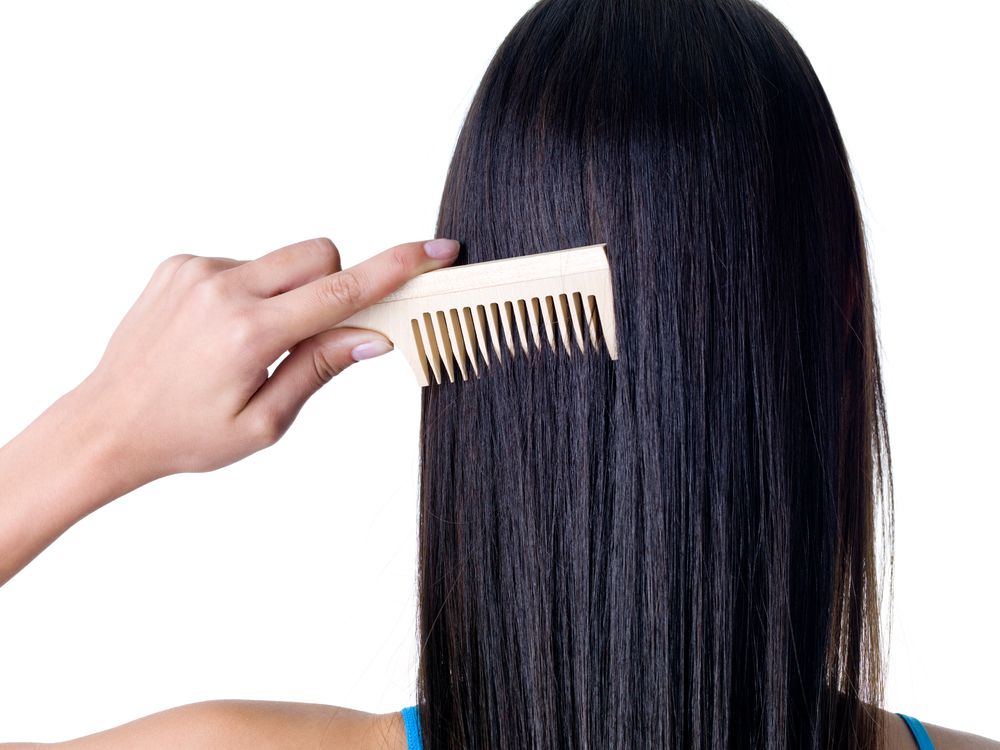

Styling your hair, whether it be dyeing it, blow drying it, straightening it or curling it, takes a toll on the health of your hair. Not to worry, though, you can keep your flatiron. Just follow these 10 tips for healthy and beautiful hair:
Hair masks are the ideal way to detangle and deep-condition your hair. They also protect your hair from heat damage and environmental stressors. Since many hair products and styling methods can cause hair to thin, it’s a good idea to use a thickening hair mask. Thickening hair masks have all the benefits of regular hair masks while helping to stimulate new hair growth and give you fuller, thicker strands.


Apple cider vinegar is not only great in salad dressings, but it’s also great for your hair. Apple cider vinegar can exfoliate dry flakes from your scalp, remove product residue, and increase shine; all this is because of its acidic nature. Use it before or after your shampoo treatment by pouring a generous amount directly onto your scalp and massaging it along your strands.
A common mistake people make is to apply the shampoo all over their hair. The shampoo is a cleanser and therefore, should only be used on the areas that get dirty and grimy. Oil and dirt tend to be concentrated in the roots. If you concentrate on shampooing your hair from the roots to the mid-shaft, then you’ll be effectively cleaning your hair without drying it out. If you’re concerned that the rest of your hair is dirty, not to worry—the act of rinsing it will bring enough shampoo to the rest of your hair shaft to properly cleanse it.
You must choose the right products for your hair. When it comes to shampoo, conditioner and styling products, avoid ones that contain sulfates, alcohol, and silicones. Sulfates deprive your hair of its natural oils, causing it to dry out. Alcohols and silicones coat your hair and weigh it down. For better looking, healthier hair, always buy products that say “sulfate and silicone-free.”
Contrary to popular belief, you need to be very gentle with wet hair. Wet hair is weaker, fragile and more susceptible to breakage. Instead of roughly towel drying your hair, lightly press the water out with a towel. Then, take a wide-tooth comb and gently work it from the ends of your hair and upwards. Do not use a hairbrush.
Sleeping with a silk pillowcase will prevent breakage and loss of moisture. This is because silk pillowcases are softer on hair than the traditional cotton or linen pillowcases. When shopping for a silk pillowcase, pay attention to momme weight. Momme weight describes the weight of the silk thread. You want to choose a pillowcase with a momme weight above 12, as anything under 12 is less durable.
Heat styling tools will dry out and possibly fry your hair. This can lead to split ends, breakage and general damage to your hair. To protect your hair, apply a heat protectant spray before styling.
Chlorine is notorious for the damage it does to hair. To prevent your hair from getting dry and breaking, wet and condition your hair before you go swimming. This will ensure that instead of absorbing chlorine your hair will absorb clean water and conditioner.
Excessive washing will strip your hair of its natural oils and cause it to dry out. In general, you should wash your hair no more than twice a week. However, if you have straight or thin hair, you should wash your hair more frequently.
For stronger, healthier hair, consider taking an A-vitamin. Vitamin A helps skin glands to produce an oily substance called sebum. Sebum will moisturize your scalp and help to keep your hair healthy. However, too much vitamin A can result in hair loss, so it’s crucial that you consult a pharmacist about the appropriate dosage. Alternatively, you can simply increase your intake of vitamin-A rich foods such as sweet potatoes, pumpkins, carrots, kale, and spinach.